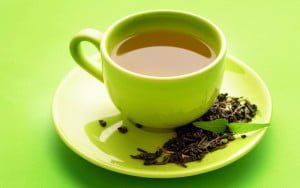 Many home health care clients are homebound. In fact, this is a condition that needs to be met in order to receive home health services if you are a Medicare beneficiary. Being homebound basically means that it isn’t easy for you to leave your home due to your medical condition. This also means that due to your medical condition, you may be limited in your means to improve or maintain a healthy lifestyle. One simple thing you can do that may help with a healthy lifestyle is to drink green tea in moderation.
Many home health care clients are homebound. In fact, this is a condition that needs to be met in order to receive home health services if you are a Medicare beneficiary. Being homebound basically means that it isn’t easy for you to leave your home due to your medical condition. This also means that due to your medical condition, you may be limited in your means to improve or maintain a healthy lifestyle. One simple thing you can do that may help with a healthy lifestyle is to drink green tea in moderation.
There are many different varieties of green tea, but all green teas are made from the leaves of the Camellia Sinensis plant. For thousands of years in Asia, this plant has been cultivated and made into tea. The health benefits of green tea are well known throughout the Eastern World.
In our Western World, the health benefits of green tea have begun to be studied. The general consensus is that most of the health benefits of green tea are derived from the high antioxidant concentrations in green tea. The antioxidants in green tea that help prevent degenerative diseases such as cancer and cardiovascular diseases are called Polyphenols. According to the National Cancer Institute, the polyphenols, specifically the polyphenol, Epigallocatechin Gallate (EGCG), have shown to decrease tumor growth in laboratory testing. Indeed, Epigallocatechin Gallate (EGCG) is considered to be the most effective cancer preventing polyphenol in green tea. Additionally, the increased antioxidant levels in the blood associated with drinking green tea have been shown to protect the LDL cholesterol particle form oxidation. This in turn, may help to prevent cardiovascular disease.
Green tea has also been known to improve brain function, increase fat burning, and improve physical performance. These benefits are mostly derived from the caffeine in green tea. The caffeine blocks the inhibitory neurotransmitter, Adenosine. This allows for an increase in the firing neurons and higher concentrations of other neurotransmitters, which is said to increase brain function. Caffeine also increases the metabolism leading to increased caloric consumption, fat burning, and physical performance. To boot, the L-theanine in green tea is thought to increase the activity of the inhibitory neurotransmitter, GABA, which has an anti-anxiety effect. Furthermore, the antioxidant Catechin compounds in green tea may lower the risk of Alzheimer’s and Parkinson’s diseases. They also have been known to give a boost to your eyesight and to make skin more resistant to the effects of UV rays.
Home health care clients with type II diabetes may benefit from drinking green tea. Insulin is used in the body to lower blood sugar levels. The bodies of people with type II diabetes aren’t as sensitive to insulin. Consequently, they don’t metabolize sugar well, and blood sugar levels go up. Some studies have shown that green tea makes the body more sensitive to insulin helping people with type II diabetes metabolize sugar better.
Even your teeth can benefit from green tea. Green tea contains fluoride. In many parts of the world, fluoride is added to drinking water because it combats tooth decay and strengthens teeth. Although, it is important to know that too much fluoride can be bad for the body. Green tea also kills bacteria in the mouth including Stretococcus Mutans, the bacteria that causes plaque formation and a leading contributor to cavities and tooth decay. Also, by killing the bacteria in the mouth, bad breath is minimized. Lastly, the Catechin in green tea reduces the body’s inflammatory response to periodontal bacteria.
As you can see, there are many benefits to drinking green tea. Home health care clients should continue to maintain a healthy lifestyle even if their homebound status may makes this more challenging. Drinking green tea in moderation is one simple way you can help maintain a healthy lifestyle even if you are homebound.
Recent Comments